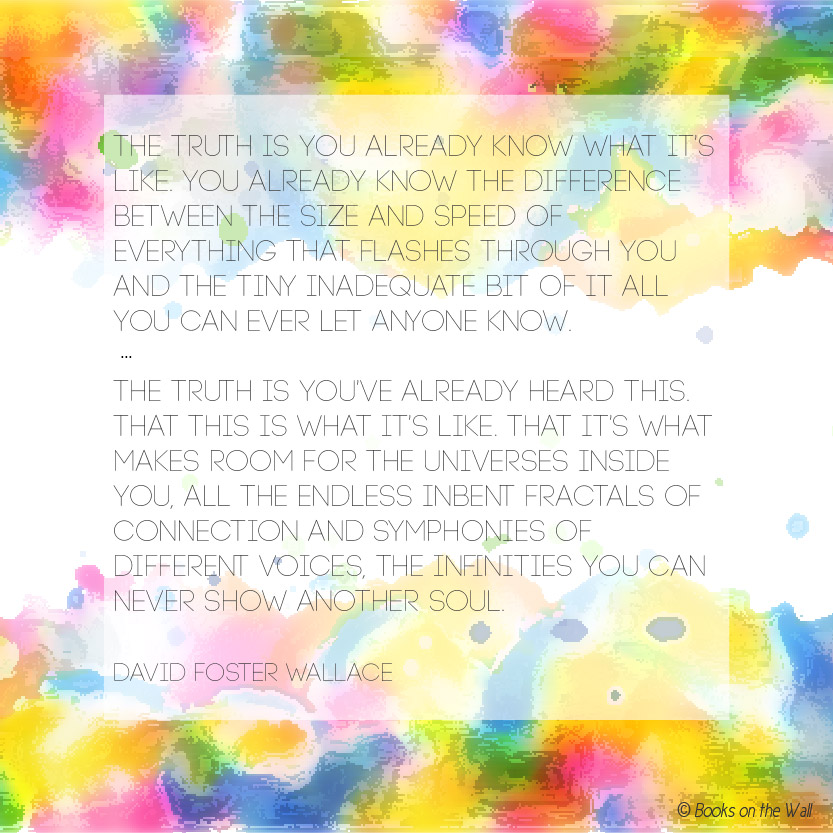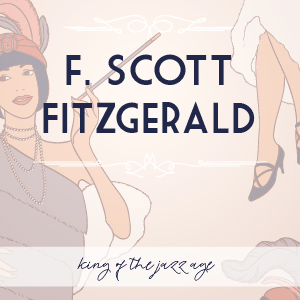Words Wednesday: David Foster Wallace
Today’s Words Wednesday features the late David Foster Wallace, an author whose maximalist style, larger-than-life plotlines and emotionally wrenching prose have inspired a near-cult following.

This quote comes from David Foster Wallace’s short story “Good Old Neon,” published in the 2004 collection Oblivion: Stories and O. Henry Prize Stories 2002. “Good Old Neon” is posthumously narrated by Neal, an attractive and apparently successful American businessman who committed suicide by crashing his car. In a simple first-person monologue, Neal expresses his lifelong emotional torment at his self-proclaimed fraudulence and inability to ever be authentic. “Good Old Neon” devastatingly explores what it means to be authentic or lonely or successful or empty—or all of these at once. Like much of Wallace’s work, “Good Old Neon” peers into the chasm between a person’s interior life and his exterior one.
Here’s the full quote:
The truth is you already know what it’s like. You already know the difference between the size and speed of everything that flashes through you and the tiny inadequate bit of it all you can ever let anyone know. As though inside you is this enormous room full of what seems like everything in the whole universe at one time or another and yet the only parts that get out have to somehow squeeze out through one of those tiny keyholes you see under the knob in older doors. As if we are all trying to see each other through these tiny keyholes.
But it does have a knob, the door can open. But not in the way you think…The truth is you’ve already heard this. That this is what it’s like. That it’s what makes room for the universes inside you, all the endless inbent fractals of connection and symphonies of different voices, the infinities you can never show another soul. And you think it makes you a fraud, the tiny fraction anyone else ever sees? Of course you’re a fraud, of course what people see is never you. And of course you know this, and of course you try to manage what part they see if you know it’s only a part. Who wouldn’t? It’s called free will, Sherlock. But at the same time it’s why it feels so good to break down and cry in front of others, or to laugh, or speak in tongues, or chant in Bengali–it’s not English anymore, it’s not getting squeezed through any hole.
So cry all you want, I won’t tell anybody.





Leave a Reply
Be the First to Comment!